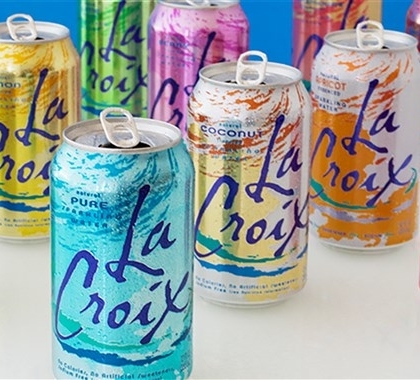I have a confession to make: I don’t really like LaCroix.
I’ve been told it’s an acquired taste, but frankly, it’s a taste I have yet to acquire. I’ll drink it if it’s served, but it’s not something I’ll seek out as of yet.
Unless, of course, it’s for a potentially-lucrative but illicit Bay State resale market.
Consumer Reports recently discovered that LaCroix’s parent company, National Beverage Corps, doesn’t have the permits required to sell LaCroix in Massachusetts (HT: Reason). They have applied for the right papers, but nothing is guaranteed–and that might create an opportunity for alert entrepreneurs to hustle verboten fizzy water into Massachusetts, where it could perhaps be sold for a hefty markup.
It’s absurd to think a paperwork hiccup would lead the criminal underground into the shady world of sparkling water smuggling, but an amusing “oops” calls to mind a couple of important principles.
First, you can always rely on the self-interest of strangers in a market economy. Prices are signals wrapped in incentives, and while I don’t like sparkling water and don’t drink it myself, I’d ditch economics and go into the beverage business if it were lucrative enough. Would that mean “selling out?” Sure, if you want to put it that way, but it would be “selling out” by providing people with what they have revealed that they want instead of what I think they should have. The sudden disappearance of LaCroix from the market could mean the opportunity to make a few dollars selling a substitute–if I can get a permit, that is.
Second, that self-interest can be misdirected when the incentives are screwy. Market exchange makes buyers and sellers better off. Political exchange, on the other hand, is too often about trading special privileges for votes and financial support. I doubt that Coca-Cola (makers of Dasani) and PepsiCo (makers of Bubly) would shed many tears of LaCroix were completely eliminated from the market. I could even see them working to persuade Massachusetts regulators that the makers of LaCroix don’t actually have all their papers in order and hence should be barred from selling in the Bay State–all in the interests of protecting the public, of course.
Again, I seriously doubt that a short-run problem with the regulatory paperwork will lead to a vast network of vicious sparkling water smugglers, but if it were to persist long enough and be enforced vigorously enough in the face of high enough demand, criminal gangs might start to take notice. In line with what we know about the economics of prohibition, strict policing of the underground sparkling water trade would likely lead to ever-more-concentrated sparkling waters. Right now, LaCroix and its substitutes are only moderately sparkling. Push them underground, and you can reasonably expect them to be dangerously sparkling before too long.
You laugh–or at least I hope you do–but restrictionism is destructive. Criminals make millions of dollars smuggling cigarettes from low-tax to high-tax states. Restrictions on the US-Mexico avocado trade led to gang violence along the border. Organized crime doesn’t smuggle LaCroix into Massachusetts (yet), but criminals do smuggle cigarettes from low-tax states to high-tax states. Maybe an absurdity–the laughable prospect of sparkling water cartels–could turn our attention toward some of the more dire consequences of restrictions on exchange.
[Originally Published at Forbes]





